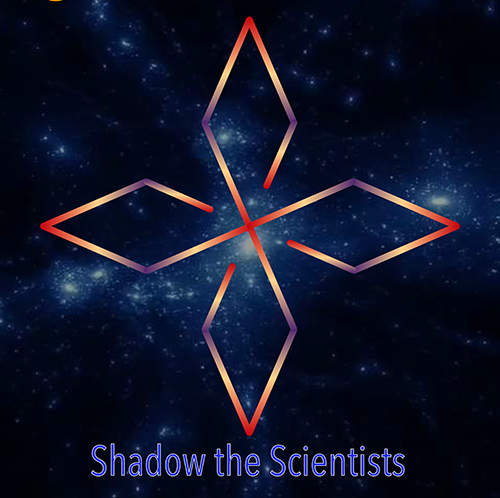Campus News
Lenses and Mirrors-Shadow the Scientists receives Heising-Simons Foundation grant
Kickstarted by UC Santa Cruz Astronomy and Astrophysics Professor Raja GuhaThakurta, Lenses and Mirrors–Shadow the Scientists brings cutting-edge scientific research to anybody’s computer screen.


Lens and Mirrors—Shadow the Scientists (StS) started as a way to connect the public with on-the-ground scientific experiments amid the COVID-19 pandemic. The program quickly became a unique global initiative making cutting-edge astronomical and scientific research accessible to anyone, anywhere.
Now with an over $700k grant from the Heising-Simons Foundation, StS will have an increased opportunity to make a lasting impact globally.
StS has strong partnerships with large networks of Indigenous and other marginalized student and educator groups in Hawaiʻi, continental US, Mexico, Australia, and several countries in Africa, Asia, Eastern Europe/Middle East, and Latin America.
“We are very excited to support the expansion of the Shadow the Scientists program,” Emily Schaller with the Heising-Simons Foundation said. “This global initiative offers students, teachers, and the public a unique window into the world of professional astronomers in real-time.”
Early into the COVID-19 pandemic, observatories nationwide shut down in-person observation but, using Zoom and virtual network computing, astronomers were able to observe on telescopes from home, a method of observing dubbed “pajama mode.”
The accessibility of “pajama mode” observing inspired UC Santa Cruz Astronomy and Astrophysics Professor and Department Chair Raja GuhaThakurta to bring cutting-edge scientific research to anybody’s computer screen.
“Shadow the Scientists is a lens for people who are not involved in science to look through a scientist’s lens,” GuhaThakurta said. “It’s a figurative lens, but it’s also a mirror because, in it, you find out more about yourself.”
GuhaThakurta kickstarted StS in partnership with professor Roy Gal from the University of Hawai’i Institute for Astronomy and Dr. Brian Lemaux from the NOIRLab and Gemini-North Observatory in 2020. So far, StS has utilized the twin 10-m telescopes from the W.M. Keck Observatory on Mauna Kea, Hawaiʻi, the Shane 3-m telescope from the Lick Observatory on Mt. Hamilton California, and the Subaru 8-m telescope on Mauna Kea. GuhaThakurta said the plan is to expand StS to other telescopes around the U.S. and the rest of the world.
StS immerses participants in an authentic scientific research experience over Zoom with non-curated content. Participating students and educators connect with real-life scientists and engineers, watch them problem solve, understand what they are passionate about, and hear about their academic and career paths. StS participants also learn about the underlying science and the technical aspects of the research equipment, like telescopes, spectrographs, and cameras.
“In experimental science, it’s not just about sitting behind your computer and answering emails,” GuhaThakurta said. “It’s also about the doing of the experiment, and if you’re an astronomer, it’s about being at the telescope. So Shadow the Scientists is meant to be an authentic view into scientists’ work, but specifically into the portion of the scientist’s work where they’re experiencing one of these moments where they’re at the telescope collecting data.”
With funds from the Heising-Simons Foundation grant, GuhaThakurta and Assistant Director Sierra Schneider look forward to expanding StS’s staff and increasing the volume of events.
“Whenever we talk with potential donors, they ask, ‘what do you need?’ and we always say ‘more hours in the day and funding to do this work,’” Schneider said. “And this grant funds people who have the time to dedicate to [Shadow the Scientists] and to have more scientists and shadowers.”
GuhaThakurta and Schneider emphasized that StS isn’t just limited to astronomy; the initiative has also engaged with research in other fields such as oceanography, robotics, biology, and more.
“At the beginning of the pandemic, there were so many people that were doing things on Zoom who never really considered doing it that way before, and the second you do anything on Zoom, you have the capacity for people to join from anywhere in the world,” Schneider said. “And so part of the reason it’s ‘Shadow the Scientists’ instead of ‘Shadow the Astronomer’ is because there’s so much more opportunity there.”
StS at UCSC also works in partnership with the Native Skywatchers/We are Stardust initiative, who will receive a separate but related portion of the Heising-Simons Foundation grant. Founded by Annette S. Lee in 2007 and based at Arizona State University, the initiative aims to improve educational inequities for native young people, inspire increased cultural pride, and promote community wellness.
Native Skywakers/We are Stardust’s overall goal is to communicate traditional indigenous sustainable practices through a living and participatory relationship with the above and below, sky and earth.
“I have attended several Shadow the Scientists observing sessions myself and have been incredibly impressed with the level of engagement that the students, educators, and parents had with the astronomers and observatory staff,” Emily Schaller with the Heising-Simons Foundation said. “We are excited for thousands of students to have the opportunity to participate in astronomical observing sessions over the coming years, including many from indigenous communities who will participate as part of the Native Skywatchers/We Are Stardust program.”
Visit Shadow the Scientists’s website for more information on upcoming events.